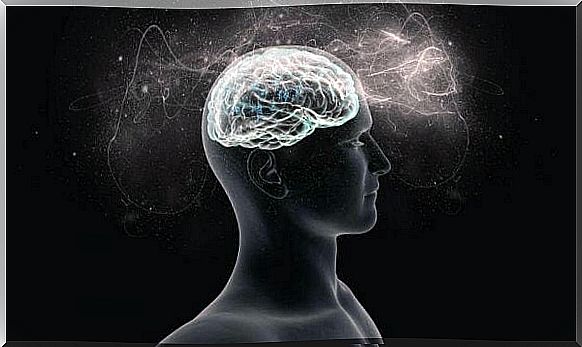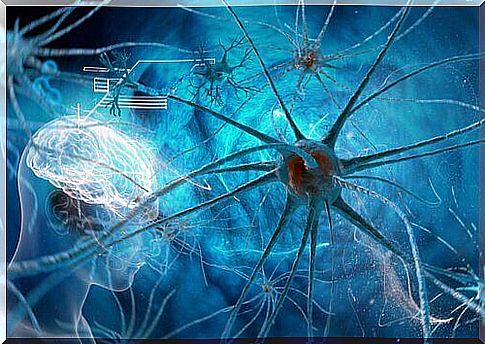The Brain Loves Magnesium – We Tell You Why

Magnesium is an essential nutrient that we usually do not get enough of in today’s world. This mineral has more than 600 metabolic functions and acts as a good protector of the brain. It is actually so good for chronic stress and anxiety that many researchers call it “nature’s valium”. The brain loves magnesium, and below we tell you why.
However, magnesium is not a miracle cure, we should clarify that immediately. Taking supplements will not fix anxiety disorder overnight; it will not put an end to our insomnia or triple our intelligence.
There is a very simple reason for this. In Western diets, there is a high shortage of this mineral. So much so that almost 70% of us have low levels of magnesium in our bodies. The problem is that many of the foods we eat lack this essential nutrient. Why? Because they do not exist in the soil we grow them in. Nowadays people fertilize with phosphorus, nitrogen and potassium…
However, this does not happen in countries like Japan. Their soil is rich in magnesium, so the Japanese people consume an average of 700 mg. This affects their life expectancy, reduces the risk of dementia, gives them better bone health, etc.
There are, of course, many other factors. But research on magnesium therapy is extensive and very promising. In fact, many articles published in the journal Nature confirm the benefits that this nutrient has for our psychological health.
Let’s take a closer look at why the brain loves magnesium.

Magnesium is becoming increasingly popular. We see it daily in pharmacies and even in grocery stores. We have heard so much talk about it that one could almost say that a “cult” has arisen around this nutrient. But how much truth is there in the claims that abound?
First, we should emphasize once again that the benefits are based on a very concrete fact: modern diets and current cereals lack magnesium due to industrial agriculture and artificial fertilizers. As simple as that.
The most interesting thing about all this is that when our reserves of this mineral fall, the first thing we will notice is a sensitivity to stress and anxiety.
But what is so special about magnesium? Why does the brain love magnesium and why is it so important for our bodies?
- Magnesium is found in many of our biochemical reactions.
- It plays an important role in cell transport and helps the cells to create aerobic energy.
- Much of the magnesium accumulates in the bone marrow.
- It promotes protein formation.
- This micromineral is also vital for nerve stimulation and muscle contraction, including in the heart.

Evidence from clinical trials and laboratories shows that a severe, chronic magnesium deficiency leads to a number of neurological problems. Some of these are
It is definitely a serious subject, but at the same time there is hope. For all that is required for many people is magnesium supplements.
Neuroscientist Gusong Liu from Beijing’s Tsinghua University is one of the foremost experts in the study of the link between magnesium and our cognitive and emotional health. His research is captivating and very enlightening.
Next, we’ll look at some of his findings.
One of the things they have discovered is that magnesium reduces stress and anxiety by stimulating the brain’s GABA receptors.
- We should remember that GABA (
- When GABA does not act as it should, we worry more, get obsessed thoughts, suddenly wake up at night with palpitations. Slowly but surely we fall into a spiral of anxiety… These are exhausting processes that magnesium can regulate.

This is definitely an interesting fact and one of the reasons why the brain loves magnesium. This substance limits the secretion of stress hormones, such as cortisol. It also acts as a neuroprotector by preventing it from reaching the brain.
As we know, cortisol is one of the most dangerous triggers of anxiety. This is, for example, what triggers the classic “brain fog”. It prevents us from focusing, thinking logically and remembering properly.
We already know that adequate levels of magnesium in the body will foster basic processes such as muscle relaxation and balance in the nervous system. Another very positive aspect is its effect when it comes to the production of correct levels of serotonin.
Serotonin is a hormone that also acts as a neurotransmitter that regulates mood. Low levels are linked to depression. But if we maintain good serotonin production, we will have more energy and be more optimistic. And magnesium can help us with that.
Now maybe you are ready to go to the pharmacy and buy a lot of magnesium. However, we must not rush. It is good to remember that magnesium is not suitable for everyone. It may not be recommended if you have kidney problems, for example.
This is why it is always best to talk to your doctor. This can help you evaluate whether to take magnesium supplements, what type and how much.

It is also a good idea to improve your diet. Buying organic is best because it ensures that the soil contains magnesium. We do not want pesticides or other things that reduce the magnesium content of the fruit or vegetable. Here are some examples of foods rich in magnesium, which we should eat more often:
- Avocado
- Salmon
- Pumpkin, sesame and sunflower seeds
- Parsley
- Mustard seeds
- Almonds, chestnuts and walnuts
- Vetekli
- Spinach
- Lentils and chickpeas
- Seafood
- Raisins and prunes
- Peas
In today’s world, nutritional intake plays a bigger role than ever; we must counteract all pressure, agitation and other things that contribute to stress. So let’s take a little better care of ourselves and not forget that there are good reasons why the brain loves magnesium.









